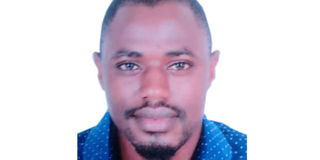Unanswered questions as schools reopen

Avelino Isharaza
What you need to know:
“ How do we maintain a population of 2,000-plus students for 14 weeks on purely academics?
The first step to recovery from any disease, disaster or situation is acceptance. Acceptance stabilises the mind, giving it the psychological support it needs to begin on the recovery.
It is here that I think both our medics, public health experts and counsellors have let us down, of course aided by politicians. The current situation is new but I don’t think it is normal.
I want to focus my attention on the education sector, which is the engine to our society, never mind that it has been the worst hard hit by the pandemic.
First, it can’t be regarded normal that child, father and mother are under the same roof waiting for divine intervention for remedy for close to two years.
We can present our statistics on increased cases of domestic violence, separation, divorce, suicide and addiction of all sorts but truthfully, it was something abnormal and we lacked the mental strength to deal with it. This has not left our family and society the same.
A lot about spouses has been learnt good and bad, children and parents have different perceptions of each other. The innocent dad’s girl who conceived out of the lockdown temptation will never win the parents’ trust again. The boy child who took to drugs and ended in rehab hasn’t brought any pleasure to both the family and society.
It is these who have been bundled together and sent to the teacher to deal with and we want to call it normal.
Charity begins at home. If one leaves home in this state, finds a teacher who has his own ordeal of the pandemic to tell, how is the teacher going to deal with this ‘new normal baggage?’
We are now faced with a debate between the teacher and student on how the Covid-19 side hustle should be handled, with both suggesting to the powers that be that each does some bit of part time - school and business. Some have even been either business partners out of convenience or at least clients, do we let the big dream business die or concentrate on a future uncertain that education promises?
It’s not normal that this debate comes up in a school setting, but with an A-Level student that has lost both parents to the pandemic and has been left the sole breadwinner of the family, what should school administrators do?
In Tororo, village authorities and elders were last week seen conducting house-to-house searches for school age children and forcing them to return to school.
Indeed most of the children have returned to school. Those who have been goat and cattle herders, chapatti makers and wheel barrow pushers all reported to school in their respective attires. Now schools are stuck with huge numbers of learners yet the class room size hasn’t changed. This has compromised the teacher-student ratio.
How do we maintain SOPs in such crowded settings? How does the teacher keep safe from both the Covid-19 pandemic and it’s after effects? Is this what the teacher deserves after all he/ she has endured in this lockdown? Can we call this normal when the teacher is edging towards the breaking point?
There is the Education ministry’s position on the pregnant girl child, and those with little children to return to class, have we prepared them against stigma? How does the CRE teacher go on with his lesson on morality in such setting? How will the Biology teacher teach reproduction? This can’t be normal. The SOPs are in place and co-curricular activities have been worst hit in schools. How do we do Physical Education practicals without breach of SOPs?
How do we maintain a population of 2,000-plus students for 14 weeks on purely academics and nothing else but academics? We don’t expect any visitation days, seminars, sports galas, and parents are even not expected to frequent schools to check on their children. Let’s face the reality; nothing is normal, as we counsel our children, let give them the mental strength to deal with the situation at hand. Moving on requires a firm conviction of the situation at hand."
The writer, Avelino Isharaza, is a social and welfare rights advocate




